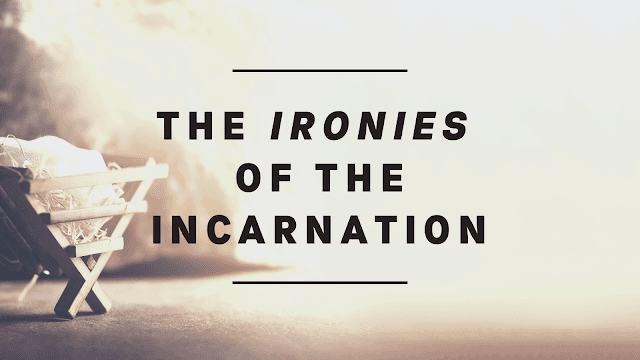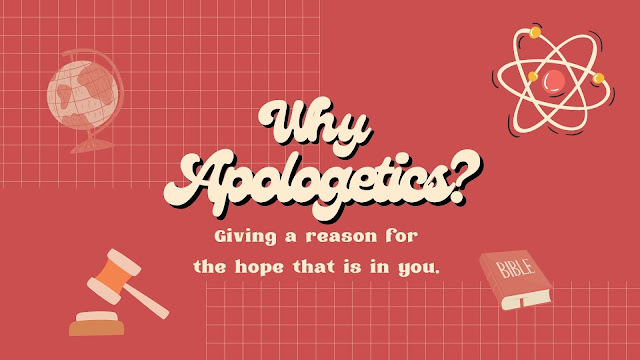The Ironies of the Incarnation
It should never cease to astonish us, the wonder of God becoming man. Jesus, the Son of God, humbled Himself in this way out of an overwhelming love for us. He came to dwell among us that He might save us. This was the plan from the beginning.
From the cradle to the cross, in the incarnation, we can see God's perfect sovereignty and loving humility. I believe one of the most powerful tools God uses to display these is irony in how the events surrounding Jesus, God in human flesh, took place.
Irony: using language or a story that normally signifies the opposite, typically for humorous or emphatic effect, in order to make a point.
Let me point out just a few ironies, from the cradle to the cross, that should leave us in a state of astonishment that the God of the universe was sovereignly and humbly intervening in the affairs of men that we might know His peace and love.
1. The Kings of Men are Merely Pawns
But you, O Bethlehem Ephrathah, who are too little to be among the clans of Judah, from you shall come forth for me one who is to be ruler in Israel, whose coming forth is from of old, from ancient days. (Micah 5:2)
Augustus was not the only kingly pawn. Herod, the king of Judea under the authority of Rome, appears in the story in Matthew 2. He is threatened by the prospect of this "new born king" and has the power to slay all the children in Bethlehem two years and under! Can you imagine this kind of authority? Again, though, this powerful madman is merely a pawn used to move Jesus to Egypt so as "to fulfill what the Lord had spoken by the prophet, 'Out of Egypt I called my son.'" (Matthew 2:15)
The irony is that few today know well the names of Augustus or Herod despite their great power in the ancient world, but billions know the name and worship King Jesus.
2. The Helpless Babe is the Savior of the World
She will bear a son, and you shall call his name Jesus, for he will save his people from their sins. (Matthew 1:21)
3. The Shepherds are the Heralds of the King
But God chose what is foolish in the world to shame the wise; God chose what is weak in the world to shame the strong; God chose what is low and despised in the world, even things that are not, to bring to nothing things that are, so that no human being might boast in the presence of God. (1 Corinthians 1:27-29)
4. The Stable is the Birthplace of the Lamb of God
John the Baptist, the forerunner, recognized this one immediately and declared, “Behold, the Lamb of God, who takes away the sin of the world!" (John 1:29). Another brilliant stroke of irony in the birth of Jesus!
Now we transition to the other end of Jesus' earthly life. Looking at the account of Christ's crucifixion we again see the humble irony in the details of the account. Even more than the manger, the cross demonstrates the love of Christ displayed in humbling Himself for us. A few of these are borrowed from a chapter in D.A. Carson's book, Scandalous: The Cross and Resurrection of Jesus which does an exemplary job unpacking the ironies in Matthew's account of the crucifixion.
5. The Man who is Mocked as King is King!
Then the soldiers of the governor took Jesus into the governor's headquarters, and they gathered the whole battalion before him. And they stripped him and put a scarlet robe on him, and twisting together a crown of thorns, they put it on his head and put a reed in his right hand. And kneeling before him, they mocked him, saying, “Hail, King of the Jews!” And they spit on him and took the reed and struck him on the head. (Matthew 27:27-30)
Do you see the utter mockery made of the Son of God? This mockery culminates with the sign placed on the cross labeling him as "King of the Jews." The astounding irony here is that the mockery is reality.
The Mockery is Reality
This king had all authority and could have summoned in an instant a myriad of angel armies to destroy his enemies and yet He willingly humbles Himself to receive the mockery to glorify the Father through His suffering.
6. The Man Who Can't Save Himself is Saving the World
[They were] saying, "You who would destroy the temple and rebuild it in three days, save yourself! If you are the Son of God, come down from the cross.” So also the chief priests, with the scribes and elders, mocked him, saying, “He saved others; he cannot save himself. He is the King of Israel; let him come down now from the cross, and we will believe in him. (Matthew 27:40-42)
Jesus hangs there on the cross seemingly a powerless victim, unable to save Himself. The irony is that in suffering here on the cross He is sacrificing His life for the world. "He is the propitiation for our sins, and not for ours only but also for the sins of the whole world" (1 John 2:2). He had to bleed for us to be freed. You can almost hear Him cry weakly back at the accusation "save yourself" with "but I am saving you!"
You can almost hear Him cry weakly back, "but I am saving you!"
7. The Man who Cries Out in Despair Trusts God
“My God, my God, why have you forsaken me?” (Matthew 27:46)
To be Jesus' disciples or mother and to hear this cry of despair would feel like a ton of bricks falling upon the hopes of your soul. And to Jesus' enemies it would be the sound of victory! It is done, he is finished. This is the end of the road.
Irony.
The cry of despair comes from the Son of Man that is willing, even in this moment, to submit to the Father's plan and receive the wrath of God for all sin on his shoulders. Make no mistake, He knew full well that this death would bring about victory, that He would rise and be crowned rightfully King (Matthew 16:21; Mark 8:31). In the midst of His despair, He is still trusting God.
8. The One Who Dies Disarms Death
And Jesus cried out again with a loud voice and yielded up his spirit. (Matthew 27:50)
It was finished. The Son of Man's heart stopped beating. Death had won. Or had it? The irony here is that through death Jesus was defeating death. [Christ] himself likewise partook of the same things, that through death he might destroy the one who has the power of death, that is, the devil, and deliver all those who through fear of death were subject to lifelong slavery (Hebrews 2:14-15). The irony is obvious here, much like David using Goliath's sword to chop off his head, so does the Son of David use Satan's greatest weapon to crush his head, on the place of the skull of all places...victorious irony.
“Death is swallowed up in victory.
O death, where is your victory?
O death, where is your sting?”
1 Corinthians 15:55

.png)


.png)


Comments
Post a Comment